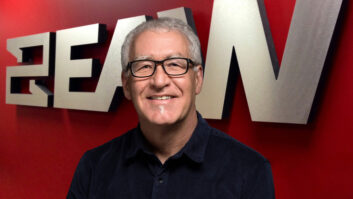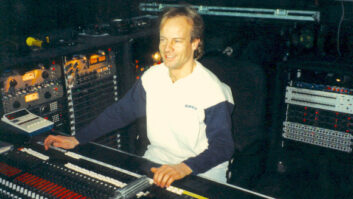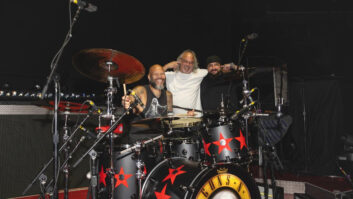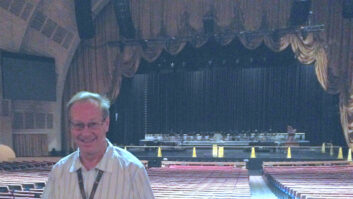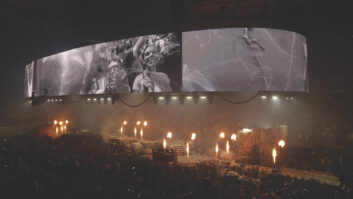Robert Scovill (left) and Dave Natale at AES
By Clive Young.

One of the most intriguing live sound events at the AES Convention this year was the meeting of FOH minds as two legendary concert engineers took the stage to talk about their careers, views and lessons learned while manning the mixing desk.
Both men spoke from wide-ranging, hard won experience, as Robert Scovill has mixed for the likes of Tom Petty and the Heartbreakers, Matchbox Twenty, Def Leppard, Rush, Prince and a host of others, while Dave Natale has manned the desk for the Rolling Stones, Fleetwood Mac, Tina Turner and Lenny Kravitz, among a long list of names.
Among the highpoints was when they were asked what their approaches to mixing were.
Scovill proffered, “It’s the classic question–‘How do you get a bass drum sound?’ and my response is always the same: What kind of music is it?’ Are there certain things that work for rock music? Absolutely. Do I do them over and over again when I’m mixing rock? Absolutely. If I’m mixing jazz, be it traditional jazz or contemporary jazz, no, because it’s an entirely different construction set. With Jazz, I don’t even start with the drums; I start with the standup base, because that’s where the swing is. It’s great to be able to operate the technology, but you have to understand the music that you’re trying to mix.”
Natale countered, “I mix for personal enjoyment. I make the drums sound the way I want them to sound, and that’s how they sound. Hopefully that works and it seems to have so far. It’s not to say it’s right or wrong. Fortunately there’s no rule book in audio or I’d have been tossed a long time ago…. I like to think I do what’s best for my client. Whether you’re good or not is someone else’s perception. As long as one more person thinks you’re good than thinks you’re bad, and you keep getting calls, then you are good. It has nothing to do with if you’re good or not. What’s the measure of good?”
